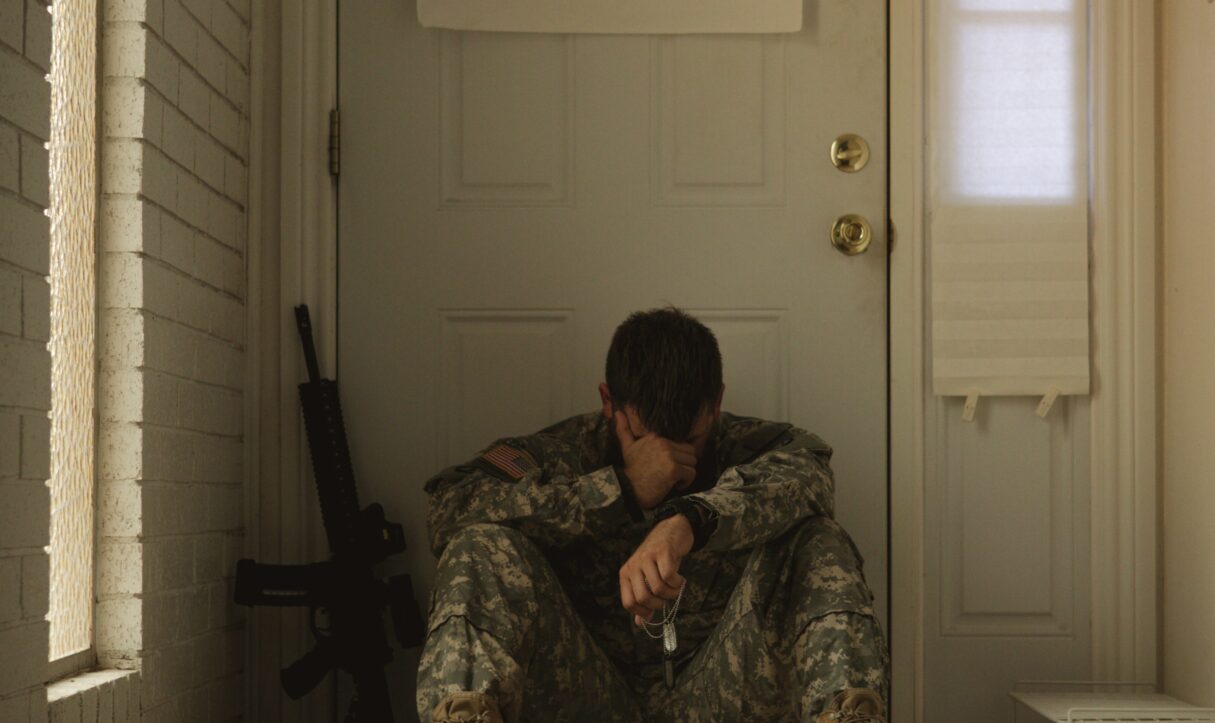Today marks 20 years since the United States invaded Iraq. Last week, the Senate got ready to vote on a bipartisan bill that would finally repeal the dangerous and outdated 2002 Iraq War Authorization. This vote has been years in the making and enjoys bipartisan support in the House as well.
The last two decades have extracted a tremendous toll on US military families like ours. We are both married to active-duty servicemembers, and our stories exemplify the hidden costs of war. On this anniversary, it is crucial that Congress repeal the 2002 Iraq War Authorization. If US policymakers remained unconvinced by the various voices urging them to do so, then they should list to the spouses of US servicemembers who are currently serving — and conducting — their Global War on Terror.
BRANDI: EARLY DAYS OF WAR
We are an active-duty Marine Corps family that has served for over 20 years. My spouse deployed to Iraq during the beginning — and peak — of that war.
In 2004, we were a young couple living a Hallmark love story. War was new and scary for us — what started as a far-away news item now affected me at home. Exchanging letters throughout his deployment helped us stay connected through the stressful separation.
The last two decades have extracted a tremendous toll on US military families like ours. On this anniversary, it is crucial that Congress repeal the 2002 Iraq War Authorization.
By the time he deployed again in 2009, it was much harder. We had just moved across the country with our two toddlers, far away from family support. Within a week of arriving, my spouse was suddenly mobilized before we could even unpack. As a Black woman living in a racially-charged community, my feelings of isolation only intensified. I remember being afraid to ask anyone to help me with things like mowing our lawn, concerned that they would realize I was alone with my kids.
I perpetually feared losing my spouse. I remember standing in the base’s childcare center, watching a TV report about a fallen US helicopter in Iraq, and then seeing military personnel walk in later that evening to alert an employee that their Marine had been killed. That could have easily been me. The effects of war hit so close to home that, by the time my spouse returned, I had a mini-stroke and was soon hospitalized for exhaustion.
During that deployment, my husband’s unit closed down a US base in Iraq. I assumed this signaled a near end to the conflict. I would’ve never imagined that the fighting and dying would continue for a decade.
JANESSA: THE LATER YEARS
My spouse joined the US Air Force during the second half of the Iraq war. Our family’s experience shows how the legacy of that original AUMF continues to put US military families at risk.
In January 2020, the United States killed Iranian General Qassem Soleimani, using the 2002 Iraq War Authorization as legal justification for the strike. Immediately following the airstrike, Iran retaliated by firing missiles at US military installations across the Middle East.
My spouse was stationed at the US Air Force’s Central Command during this time, working to ensure our military commanders had the intelligence they needed to protect our troops. When the strike was launched, my husband was recalled to work with no indication of when he would return. There were rumors he could deploy within the next 12 hours. He later recounted to me a moment on the operations floor just after news agencies reported missiles falling onto US bases when a security forces Airman rushed into the room to ask if there was any word of casualties; His brother was deployed to Balad.
I still remember my feelings of dread as I watched the news alerts on my phone, fearing that our country was on the brink of yet another battle within Iraq. Over 100 servicemembers stationed in Iraq suffered traumatic brain injuries as a result of the retaliatory attacks, the consequences of which still live with them today.
Too often, US presidents are able to send our troops into harm’s way without consulting Congress. Even though the United States’ presence in Iraq is purely advisory now, a president might use an outdated Authorization to Use Military Force to launch us into another conflict without Congress’s due diligence and oversight. This must end now.
REFLECTING ON THE 20TH ANNIVERSARY
On the 20th anniversary of the Iraq war, US policymakers need to do two things. First, keep their promise to take care of veterans like our spouses. US policymakers have promised to expand veteran benefits, but as Secretary of Veterans Affairs Denis McDonough points out, taking care of veterans is not just the responsibility of the Department of Veterans Affairs. The Biden administration signed the Promise to Address Comprehensive Toxics (PACT) Act, which is the most significant expansion of benefits and services for veterans that have been exposed to toxic materials. A good move indeed, but there is still a lot to be done. Some of our loved ones live with permanent scars from this conflict, both visible and invisible. We owe them the care and resources they were promised when they signed on the dotted line.
Second, Congress must repeal the 2002 Iraq War Authorization, starting with last week’s Senate vote. This law is not required for any ongoing operations but poses a concrete threat to military family safety.




















